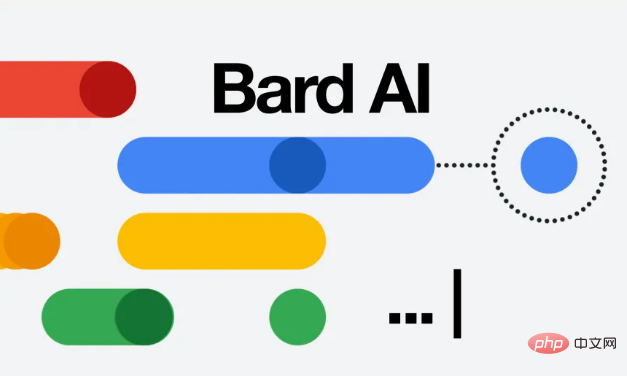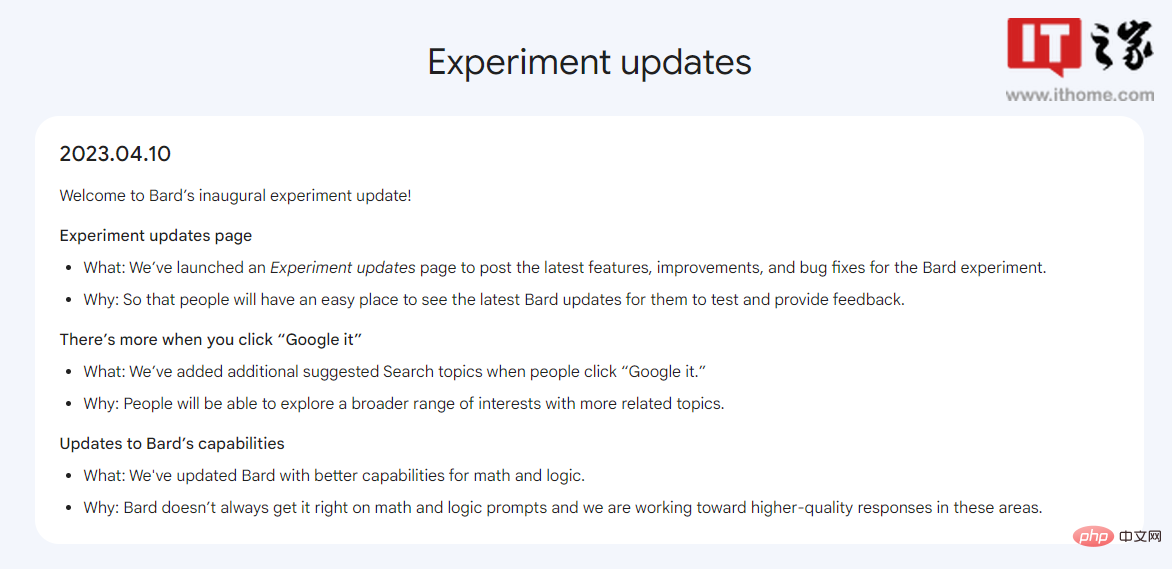
On April 12, Google launched a new “Experimental Updates” page for its artificial intelligence chatbot Bard, allowing users to learn about Bard’s latest features and progress.

#Bard is an “experimental conversational artificial intelligence service” launched by Google earlier this year and is currently available in the United States and the United Kingdom. Google says Bard's model is constantly being tweaked, but without a centralized place to show its changes, it's hard for users to know what exactly it can do. Therefore, Google created this "Experimental Updates" page, where users can find information about recent updates to Bard, including new features and bug fixes. Each update includes a "what" and "why" explanation. As for the page itself, Google says it's meant to give "users a convenient place to view the latest Bard updates, as well as test and provide feedback."
IT House noticed that two updates have been released to this page. The first is improvements to Bard’s “Google it” button, which jumps users to a Google search page relevant to their Bard conversations. Google says the feature adds more suggested search topics to provide users with "a broader range of interests and more relevant topics." The second is about improving Bard's math and logic abilities. Google acknowledges that Bard doesn't always give the right answers in these areas, so the company is working to improve the quality of answers in these areas. This improvement comes shortly after Google switched Bard to a more advanced language model.

Although these updates are relatively short and vague, and do not specify how Google makes these updates, it is undoubtedly a good start to show its development ideas to the public. . And, at a time when both industry professionals and ordinary people are publicly concerned about the unregulated growth of AI technology, Google's transparency may earn it some credibility points.
The above is the detailed content of Google Bard chatbot experimental update page is online, with improved math and logic capabilities. For more information, please follow other related articles on the PHP Chinese website!




